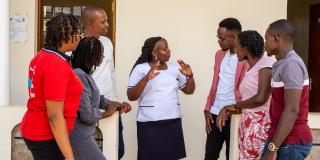
Sexual and reproductive health is part of multiple human rights that allow people to make informed decisions about relationships, their bodies, family planning, sexuality, and wellbeing. However, millions of people worldwide experience barriers to this including in countries like Kenya.
While Kenya has made considerable progress in improving sexual health, the unmet need for family planning remains high, with teenage pregnancy currently at 15%.
There’s also a high prevalence of HIV and AIDS among teens, with adolescent girls and young women particularly vulnerable. They account for 78% of new HIV infections in Kenya today.1 Meanwhile, fear of negative reactions and discrimination deters young people from using important health services, including HIV tests.
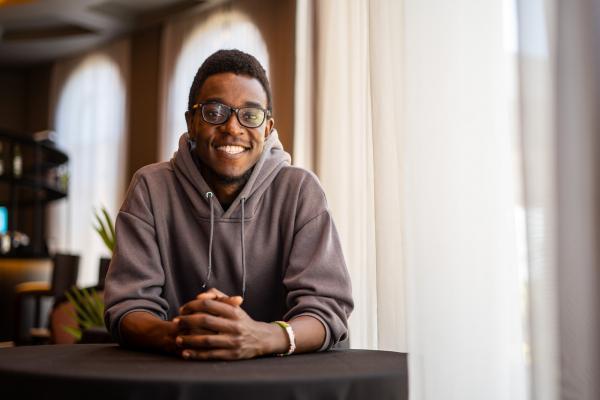
However, two youth volunteers, Emmanuel and Susan, are helping to change this narrative. They’re working with young and marginalised people to promote sexual and reproductive rights in their home country to combat teen pregnancy and the spread of HIV and AIDS.
Meet Emmanuel
Before volunteering, Emmanuel, 26, was studying something completely unrelated, a civil engineering course. However, he decided to get involved in work at a local hospital as he felt very passionate about health. As a young volunteer, it makes it easier for youth to confide and open up to him.
“In Kenya, we don't talk about sex easily and sex outside marriage is a huge taboo. That is why young people aren’t expected to have sex with each other. But of course, it happens and unfortunately, there is a lack of information, which means that many young people have no idea of the possible consequences," Emmanuel explains.
Changing the stigma around condoms
Despite condoms playing a crucial role in combatting the transmission of HIV and AIDS, social stigma around buying condoms is still rife in Kenya. Young people fear that purchasing condoms may label them as sexually promiscuous or as cheating on their partners. In some communities, condoms are viewed as a useful tool for prevention when you “fail” at abstinence and monogamy. Subsequently, the uptake of condoms is low and some religions discourage the use of contraceptive methods.
Emmanuel explains, “Many government hospitals have condom vending machines, but often in visible places at the entrance. Someone young will then try to get it invisibly, in the dark. Or you go to the hospital for a prescription for the contraceptive pill, but in the waiting room, the adults will look at you disapprovingly.
"There’s also no confidentiality during a doctor's visit and the doctor themselves will express disapproval. In small communities, the rest of the family is often aware by the time you get home and since everyone knows each other, the news will spread quickly.”
However, Emmanuel is reducing the stigma around condoms, so they’re viewed as “not dirty, but smart, cool even,” Emmanuel discloses. He’s also teaching young people about the importance of taking care of yourself so they can see it is possible for someone their age to protect themselves without having to feel ashamed.
Moreover, Emmanuel has engaged with health providers, where they’ve discussed the issues, young people have raised. These include being judged about using contraception and the lack of privacy.
Emmanuel mentions: “What I liked about this meeting is that the healthcare providers did not refute the issues. They recognised that it happens. Ok, they also blamed the facility, about not having enough resources and staff, but they didn't deny the issues.”
Meet Susan
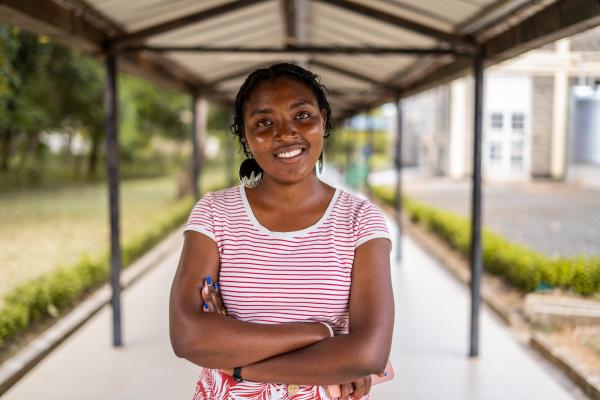
Susan, 24, works with young people. She draws on the challenges she’s experienced as a woman when accessing health services to help others: “I was affected by issues about mental health, especially stress and depression a while back. I had no one to talk to and no avenues to channel these emotions I was feeling. This resulted in me pulling away from people.”
Susan also shares the discrimination she’s experienced from members of her community who believe that unmarried women shouldn’t be engaging in any sexual intercourse until they’re wed.
“In my community, premarital sex is discouraged. Therefore, when young single women like me, use services such as an HIV or pregnancy test, they are frowned upon,” she says.
Previously, Susan didn’t realise the benefits of getting a HIV test, but after VSO training, she got tested. Furthermore, she’s learnt about contraception and how to advocate for her rights. She then shares this knowledge with other young people.
Before, in Susan’s local hospital, there was no area in the hospital where young people could go for all sexual and reproductive health services. However, thanks to efforts by Susan and other community-based organisations, a youth friendly service centre has been constructed.
Promoting sexual and reproductive equity for people with disabilities
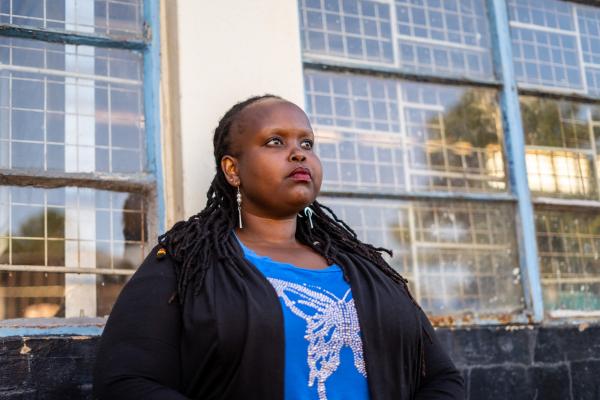
Sexual and reproductive health services are also often inaccessible to young women with disabilities like Winnie. Winnie lives with a physical disability and has an implant on her left leg. As a result of her disability, she suffers from osteoporosis. In addition, she has a hormonal imbalance. Here she opens up about her harrowing experiences:
“I had to stay at home for two years because of the surgery on my leg. I lost my job as well because I was told not to work because of the implant. I also had faced a lot of stigma in society because of the disability.
"People were even questioning my mum saying you work in a hospital facility, but yet you have a child who has disability. Even in church, I remember I used to sing in the choir. I remember even one of my peers imitating me on how I climbed the stairs to the pulpit. This really broke my heart.”
However, with the support of volunteers like Susan, Winnie now believes she has a space where she can share her struggles without discrimination. She has learnt more about how to stand up to gender-based violence and about which channels and number she can use to report a violation. Thanks to the support Winne received, this inspired her to become a VSO volunteer herself and she’s now a digital youth advocate.
In conversation with health care providers
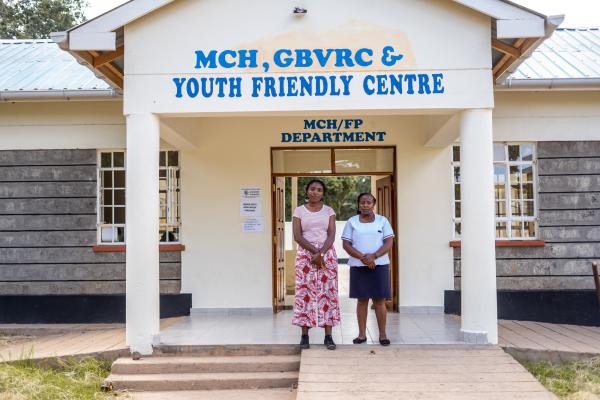
Susan has played a key role in engaging in conversations with health care providers at the youth friendly centre and creating a score card. The score card is a six-step tool developed by VSO and used by volunteers to evaluate whether the health care services in the centre are up to standard. After the young patients scored all the challenges, volunteers then organised a forum for the young people to meet with service providers to voice their opinions.
Susan explains, “We also drafted an improvement plan with the health care providers. This process has already led to positive changes, such as improved interactions with young people. Furthermore, there are plans to hire a sign language interpreter to make care more accessible to young people who are deaf or hard of hearing."
Susan is happy to see that there’s now more willingness amongst people to engage in conversations around contraception and sex education.
Looking to the future
When Susan thinks of the future, she hopes that everybody will feel comfortable walking into a hospital and accessing sexual reproductive health rights. She also wants others to understand what sexual reproductive health rights are and what services are on offer to them at the youth friendly centre.
The Make Way project
Our five-year Make Way project (2021-2025) aims to break down barriers to sexual and reproductive health rights by promoting a new way of looking at sexual health issues, through an intersectional lens.
Intersectionality refers to the idea that different aspects of a person's identity, such as ethnicity, gender, sexual orientation and class, intersect and overlap to create unique experiences of discrimination and privilege.
Footnotes
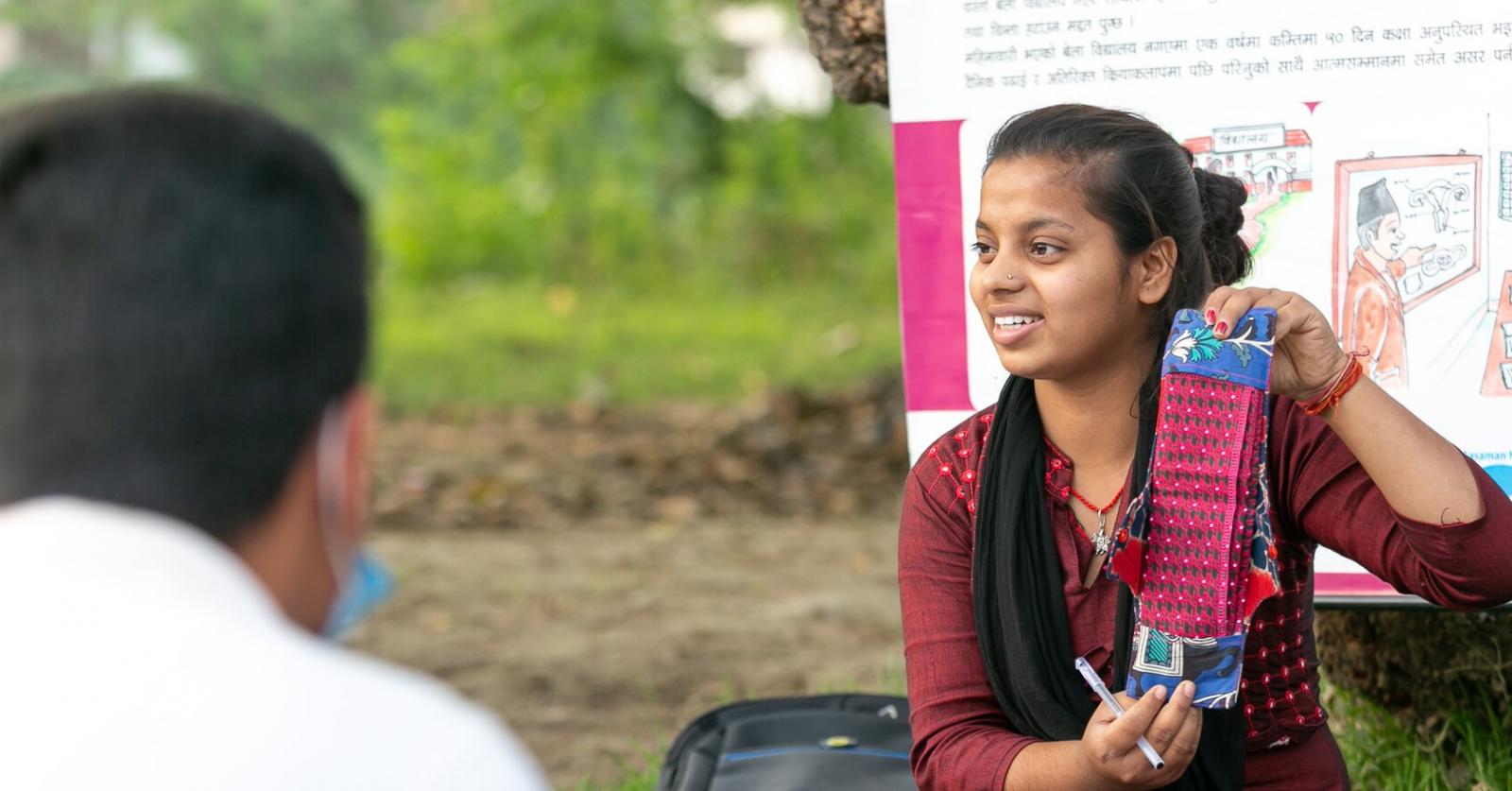
Support us with a donation
Read more
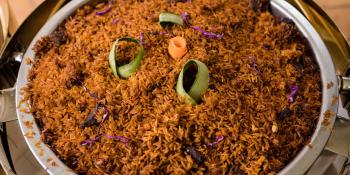
Kenyan beef pilau recipe
In this blog, some of our VSO family share their favourite mouth-watering recipes and highlight the work they’re doing to promote sustainable farming practices and healthy eating. Here is a recipe for Kenyan beef pilau from volunteer Fridah.
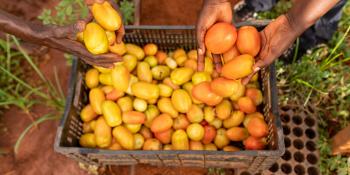
Bangladeshi tomato bhorta recipe
In this blog, some of our VSO family share their favourite mouth-watering recipes and highlight the work they’re doing to promote sustainable farming practices and healthy eating. Here is the Bangladeshi tomato bhorta inspired by Maleka’s vegetable garden.
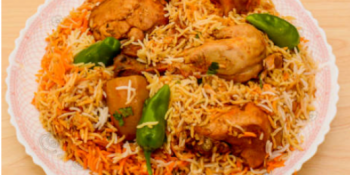
Pakistani chicken biryani recipe
In this blog, some of our VSO family share their favourite mouth-watering recipes and highlight the work they’re doing to promote sustainable farming practices and healthy eating. Here is Pakistani chicken biryani from volunteer Khajida.
